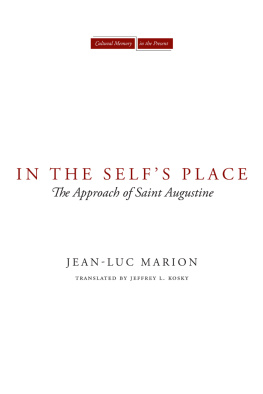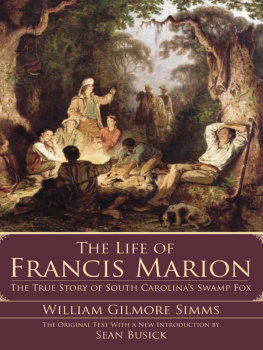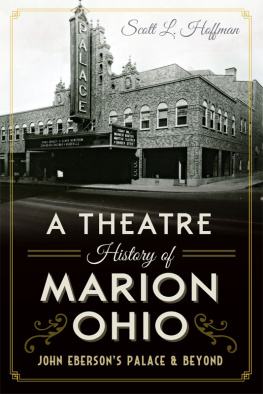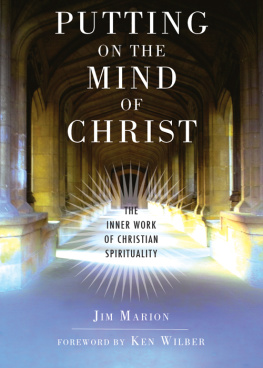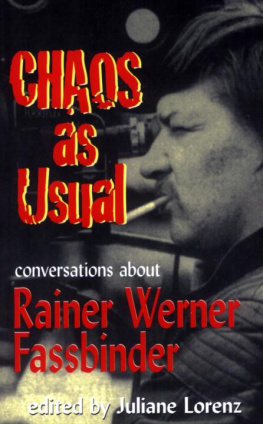THE RIGOR OF THINGS
The Rigor of Things
CONVERSATIONS WITH DAN ARBIB
JEAN-LUC MARION
Translated by Christina M. Gschwandtner
FORDHAM UNIVERSITY PRESS
New York 2017
Copyright 2017 Fordham University Press
All rights reserved. No part of this publication may be reproduced, stored in a retrieval system, or transmitted in any form or by any meanselectronic, mechanical, photocopy, recording, or any otherexcept for brief quotations in printed reviews, without the prior permission of the publisher.
This book was first published in French under the title La rigueur des choses: Entretiens avec Dan Arbib, Flammarion, Paris, 2012.
This work, published as part of a program providing publication assistance, received financial support from the French Ministry of Foreign Affairs, the Cultural Services of the French Embassy in the United States and FACE (French American Cultural Exchange). French Voices Logo designed by Serge Bloch.
Fordham University Press has no responsibility for the persistence or accuracy of URLs for external or third-party Internet websites referred to in this publication and does not guarantee that any content on such websites is, or will remain, accurate or appropriate.
Fordham University Press also publishes its books in a variety of electronic formats. Some content that appears in print may not be available in electronic books.
Visit us online at www.fordhampress.com.
Library of Congress Cataloging-in-Publication Data
available online at http://catalog.loc.gov.
Printed in the United States of America
19 18 17 5 4 3 2 1
First edition
in memory of Maxime Charles
CONTENTS
by David Tracy
David Tracy
It is hardly necessary to introduce Professor Jean-Luc Marion to this audience, since he has become a very important interlocutor in North America for over twenty years. However, the occasion of the English translation of these fascinating interviews is a good time to remind ourselves of some of his accomplishments in philosophy, intellectual history, and, more recently, theology.
First philosophy. There is no doubt that Jean-Luc Marion is the foremost living phenomenologist. Not only has he continued the great tradition of Husserl, Heidegger, Levinas, Henry, Ricoeur, and others, but Marion has advanced that tradition in major ways, especially through his groundbreaking phenomenological work on related phenomena of givenness and gift as well as his analysis of the saturated phenomenon. Along with these original phenomenological contributions, Professor Marion has also written major interpretive essays on such phenomenological predecessors as Edmund Husserl, Martin Heidegger, Emmanuel Levinas, and Michel Henry.
Second, the scholarship of intellectual history. In the field of intellectual history, Professor Marion early became a major interpreter of seventeenth-century philosophy, especially in several volumes on the very founder of modern philosophy, Ren Descartes. It is no small thing to provide a new and persuasive interpretation of Descartes. Most intellectual historians today no longer follow the interpretation of Descartes given by the standard histories of philosophy, nor even the once-influential readings of Martin Heidegger or tienne Gilsontoday they follow Marions. His Descartes work alone would have assured him a major place in his second discipline, intellectual history.
Third, theology. In more recent years, Marion has turned explicitly, no longer merely implicitly, to theology. Here he has both followed and advanced the theological program of his teachers, the great (indeed now classic) resourcement thinkers of early and mid-twentieth-century French theology: Henri de Lubac, Jean Danilou, Yves Congar, Louis Bouyer, and the Swiss theologian Hans Urs von Balthasar. Marions earlier work in philosophical theology, beginning years ago with his influential book God Without Being, has increased in recent years, augmenting his writing for and editorial work in the French edition of the distinguished journal Communio. He has also written a major essay on Dionysus the Areopagite and more recently a brilliant book on Augustine. His present and future work at the University of Chicago as well as at the Institut Catholique in Paris will, so he tells his readers, address the history of theological reflection from the second-century Logos theologian Justin Martyr forward through the history of early Christian theology, including Tertullian and Clement of Alexandria.
Jean-Luc Marions range, his phenomenological acuity, his unusual skill in explication du texte, his hermeneutical care in intellectual history, and his originality on givenness, gift, and saturated phenomena have made Marion one of the most important thinkers of our period.
So much is this the case that nine years ago France awarded Professor Marion its highest honor, election to the Acadmie Franaise; the next year, Italy elected him to the Accademia dei Lincei; and the year after that Germany awarded him the Karl Jaspers annual prize for philosophy.
These brilliant interviews fill in many personal and intellectual details for Anglophone readers, just as the original French publication performed that service so successfully for his readers in France.
Indeed, in recalling the many intellectual pathsphilosophy, intellectual history, theologyto which Professor Marion has contributed in major ways, I began to ask myself how such unrelenting productivity and creativity in these major fields is possible. Well, as the Scholastics rightfully declared, Ab esse ad posse valet illatio. These interviews help clarify the range and depth of Jean-Luc Marions amazing work.
At least two reasons could have kept me from committing to a book of interviews. First, I have always had reservations about this sort of writing. Second, publishers often aim more at popularizing than at paying attention to the complexity of phenomena. This makes it difficult not to get caught between two equally calamitous options: Either one devalues anything really worthwhile that one has taken such trouble to write, or one becomes anecdotal, giving an apologia pro vita sua with its accompanying beautiful lies. And, to call on Proverbs, besides these two reasons there is a third: In these kinds of false confessions, the author always says too much or too little. Whether it is because he distrusts the reader or because of a lack of self-confidence or even self-hatred, he runs the risk of tottering into tall tales or only talking to himself.
I would have given in to these reasons and not thwarted my basic laziness had two friends not intervened. The first, Benot Chantre, waited with a cordial but pitiless persistence for years to bag me, that is to say, to add me finally to his collection. The second, Dan Arbib, who was my student for a long time and is now an established scholar, persuaded me through a great deal of understanding, clear-sightedness, and tact that well-conducted conversations can become properly philosophical exercises. I would not have taken the plunge without him, and if even the smallest good comes of it, I owe it to him more than to anyone else. I thus reassure myself with the thought that the two share with me both the risk and the responsibility for this exercise and its result. Finally, there was Jean and Marie-Jos Duchesnes hospitality in hosting the meetings with Dan Arbib. Their home in Normandy had been the haven for so many other beginnings that even this undertaking found a natural place there. My gratitude goes to them.
Consequently, this wont be a sketch of memories or a parody of a premature final judgment, made blindly and in bad faith. I will not move forward masked, neither to unmask myself nor to unmask others, but in order to uncover a history that greatly exceeds my own. It was the unbelievably good fortune of my generation to have witnessed the group of notable figures that lived through it or gave shape to it and who often were far more than merely professors or thinkers.
Next page

